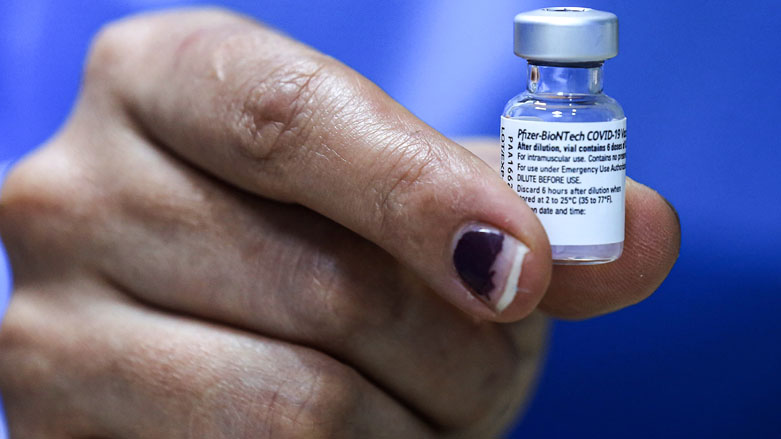KRG drugs regulator tracks side effects in COVID-19 vaccine recipients

ERBIL (Kurdistan 24) – The Kurdistan Region’s medicines regularly agency announced on Tuesday that it had launched an online form to track the side effects of COVID-19 vaccine in a bid to follow up on any abnormal post-vaccination symptoms.
The online form – available in Kurdish and English – includes questions about a respondent’s medical history and symptoms they may experience after a vaccination, including commonly reported symptoms like fatigue, headache, itching, and injection site pain.
“The aim of this form is to track the vaccination process after receiving the doses,” Dr. Aso Hawezy, the spokesperson for the health ministry, told Kurdistan 24 on Tuesday.
“In case there is an unusual symptom developed by a jab’s recipient, health workers will be able to immediately reach [them] and provide care,” Hawezy told Kurdistan 24.
Experiencing mild symptoms after receiving a dose of a COVID-19 vaccine is common and not a cause for alarm, indicating an immune response to the artificial antibodies. However, some people develop severe and life-threatening symptoms that require immediate medical attention.
The Kurdistan Region’s health authorities have said they had not yet detected any unusual cases of people developing life threatening symptoms after COVID-19 vaccination.
“Anyone can fill out the form regardless of the severity of their symptoms,” Hawezy said.
The Region has included three brands of vaccine in its national vaccination program: the Chinese Sinopharm, British-Swedish Oxford-AstraZeneca, and American-German Pfizer.
As of April 18, 55,820 vaccines had been been delivered to the Kurdistan Region and health workers had administered more than 80 percent of the available doses, according to the regional health ministry.
Editing by Joanne Stocker-Kelly
